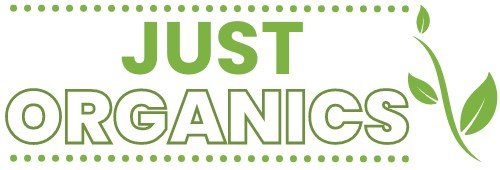Are you looking to make healthier choices when it comes to your food? Navigating the organic aisles can be a great place to start. Choosing organic food not only benefits your health but also helps support sustainable farming practices and reduce environmental impact. In this article, we will guide you through the process of shopping for organic food, from understanding labels and certifications to differentiating between organic and conventional produce. By the end, you’ll have all the information you need to confidently navigate those organic aisles.
When it comes to buying organic food, understanding labels and certifications is key. Organic food labels can be confusing with terms like ‘certified’, ‘100% organic’, and ‘made with organic ingredients’. We will break down these labels for you so that you know exactly what they mean and how they affect the quality of your food. Additionally, we will help you differentiate between organic and conventional produce by highlighting the importance of pesticides, GMOs, and other factors that make a difference in your health. Armed with this knowledge, you’ll be able to make informed decisions about what goes into your shopping cart. So let’s get started on this journey towards healthier eating!
Table of Contents

Understanding Organic Food Labels and Certifications
Before diving deeper into the world of organic food, let’s unravel the mystery behind those intriguing labels and certifications that adorn our favourite products. Organic food labelling guidelines ensure that consumers have accurate information about the organic status of a product. The United States Department of Agriculture (USDA) has established strict regulations for organic labelling, which include using 95% or more organic ingredients for products labelled as “organic.” This means that these products are free from synthetic additives, pesticides, and genetically modified organisms (GMOs). Understanding these guidelines helps you make informed choices when shopping for organic food.
The importance of organic certifications cannot be overstated. When you see a certified organic label on a product, it means that it has gone through rigorous testing and meets specific standards set by an accredited certification body. These certifications provide assurance that the product has been produced using sustainable farming practices and without harmful chemicals. One widely recognized certification is the USDA Organic Seal, which guarantees that the product complies with all USDA regulations.
Choosing products with organic certifications not only supports environmentally friendly practices but also ensures healthier options for you and your family. Research shows that organically grown fruits and vegetables tend to have higher levels of nutrients compared to conventionally grown ones. Additionally, consuming foods grown without pesticides may reduce your exposure to harmful chemicals linked to various health issues such as cancer, hormone disruption, and neurodevelopmental disorders.
Understanding organic food labelling guidelines is crucial in navigating the aisles of an organic store or supermarket. It allows you to identify products made with predominantly organic ingredients and avoid those containing synthetic additives or GMOs. Moreover, seeking out certified organic labels provides further reassurance that the product has met stringent standards set by reputable certifying bodies like the USDA Organic Seal. By opting for organically certified products, you can support sustainable agriculture while promoting better health outcomes for yourself and your loved ones.
Differentiating Between Organic and Conventional Produce
When you’re in the produce section, take a moment to notice the key differences between organic and conventional fruits and vegetables. Organic produce is grown using organic farming methods, which prioritize soil health and biodiversity. On the other hand, conventional produce is grown using conventional farming methods that often rely on synthetic pesticides and fertilizers. These differences in farming practices can have a significant impact on both the environment and your health.
One of the main differences between organic and conventional farming is the use of synthetic pesticides. Conventional farmers often use synthetic pesticides to control pests and diseases in their crops. However, these chemicals can leave residue on the produce we consume, potentially affecting our health. Organic farmers, on the other hand, use natural alternatives like crop rotation, beneficial insects, and organic pesticides to manage pests naturally.
Another important difference lies in how organic and conventional farmers care for their soil. Organic farmers focus on building healthy soil through practices such as crop rotation, cover cropping, composting, and minimal tillage. This helps to enhance soil fertility and structure while promoting biodiversity. Conventional farming methods often rely heavily on chemical fertilizers that may deplete soil nutrients over time.
When it comes to your health, choosing organic produce can be beneficial because it reduces exposure to pesticide residues commonly found in conventionally grown fruits and vegetables. Studies have shown that consuming organic food can lower pesticide levels in urine samples significantly. Additionally, some research suggests that organic food may contain higher levels of certain nutrients like vitamin C, iron, magnesium, and phosphorus compared to conventionally grown counterparts.
There are distinct differences between organic and conventional fruits and vegetables when you take a closer look at their farming practices. By choosing organic options whenever possible or feasible for you financially or geographically – you can reduce exposure to harmful synthetic pesticides while supporting sustainable agricultural practices that prioritize soil health and biodiversity. While more studies are needed to fully understand all the potential benefits of eating organically, current evidence suggests that it may have positive effects on both human health and the environment.
The Environmental Benefits of Choosing Organic
By opting for organic produce, you are actively contributing to a healthier planet and supporting sustainable farming practices that prioritize environmental well-being. Organic farming methods focus on environmental sustainability by reducing the use of synthetic pesticides and promoting natural pest control measures. This not only helps protect the health of our ecosystems but also reduces the risk of pesticide contamination in our waterways.
One of the main environmental benefits of choosing organic is the reduction in pesticide use. Conventional agriculture relies heavily on synthetic pesticides to control pests and diseases. These chemicals can have detrimental effects on wildlife, soil health, and water quality. In contrast, organic farmers use natural methods such as crop rotation, biological pest control, and composting to maintain healthy plants without relying on harmful chemicals. By supporting organic farming, you are helping to minimize the release of harmful pesticides into our environment.
Another way that choosing organic benefits the environment is through soil conservation. Organic farming practices prioritize building and maintaining healthy soils by using techniques like cover cropping and composting. These methods enhance soil fertility and structure, which helps reduce erosion and runoff. Healthy soils also act as carbon sinks, sequestering carbon dioxide from the atmosphere and playing a crucial role in mitigating climate change. By supporting organic agriculture, you are encouraging practices that promote long-term soil health and contribute to a more sustainable future.
Opting for organic produce not only benefits your own health but also contributes to a healthier planet. By choosing organic, you are supporting environmentally sustainable farming practices that reduce pesticide use and promote soil conservation. Making this conscious choice can help protect our ecosystems, improve water quality, mitigate climate change impacts, and support a more balanced relationship between humans and nature.
Tips for Budget-Friendly Organic Shopping
Maximize your savings while still supporting sustainable farming practices by following these tips for finding affordable organic options. Organic food can often be more expensive than conventionally grown food, but with some strategic shopping strategies, you can still enjoy the benefits of organic without breaking the bank.
One of the best ways to find deals on organic food is to shop at local farmers markets. Not only will you have access to fresh, locally grown produce, but you can also often find lower prices compared to grocery stores. Farmers markets allow you to support small-scale farmers who may not be able to afford organic certification but still follow sustainable farming practices. Additionally, consider joining a community-supported agriculture (CSA) program where you pay a set fee upfront and receive a weekly or monthly box of fresh organic produce directly from local farms.
Another tip for budget-friendly organic shopping is to buy in bulk. Many health food stores and co-ops offer bulk bins where you can purchase grains, beans, nuts, and other pantry staples at a lower cost per pound compared to pre-packaged options. Buying in bulk not only saves money but also reduces packaging waste. You can store these items in glass jars or reusable containers at home for extended use.
Lastly, take advantage of sales and coupons when shopping for organic products. Keep an eye out for discounts offered by supermarkets or online retailers that specialize in organic foods. Sign up for newsletters from your favorite brands or stores as they often send out exclusive promotions and coupons. Additionally, consider purchasing frozen fruits and vegetables when they are on sale as they are just as nutritious as fresh ones and can be stored longer.
By implementing these shopping strategies such as buying from farmers markets, purchasing pantry staples in bulk, and taking advantage of sales and coupons, you can make your organic grocery shopping more budget-friendly while still supporting sustainable farming practices. With a little planning and smart choices, eating organically doesn’t have to break the bank!
Incorporating Organic Foods into Your Diet
Get ready to elevate your meals with the delicious and nutritious addition of organic ingredients. Incorporating organic foods into your diet is a great way to support your health and well-being. One of the best ways to start incorporating organic foods is through meal planning. By taking the time to plan out your meals in advance, you can ensure that you have plenty of organic options on hand.
When it comes to meal planning, think about incorporating organic fruits, vegetables, grains, and proteins into your recipes. Start by making a list of all the ingredients you will need for each meal and be sure to include a variety of organic options. For example, instead of reaching for conventionally grown tomatoes for your salad, opt for fresh organic tomatoes that are free from pesticides and other harmful chemicals.
In addition to meal planning, try exploring new recipes that incorporate organic ingredients. There are countless resources available online where you can find delicious and healthy recipes using organic foods. From soups and salads to main dishes and desserts, there are endless possibilities when it comes to creating flavorful meals with organic ingredients.
By incorporating meal planning and exploring new recipes into your routine, you can easily incorporate more organic foods into your diet. Not only will this help support your health, but it will also allow you to enjoy the delicious flavours that come with using fresh, high-quality ingredients in your meals. So get started today by making a grocery list filled with all the wonderful organic ingredients you want to try!
Conclusion
In conclusion, navigating the organic aisles and shopping for organic food can be a daunting task. However, armed with the knowledge of understanding organic food labels and certifications, you can make informed choices about the products you buy. By differentiating between organic and conventional produce, you can ensure that you are purchasing items that are free from harmful chemicals and pesticides.
Choosing organic not only benefits your health but also has positive environmental impacts. Organic farming practices promote soil fertility, conserve water, and reduce pollution. By supporting organic agriculture, you are contributing to a more sustainable future for our planet.
When it comes to budget-friendly shopping, there are several tips you can follow. Look for sales and discounts on organic products, buy in bulk when possible, and consider joining a local co-op or community-supported agriculture program. Additionally, incorporating more organic foods into your diet doesn’t have to be overwhelming. Start by swapping out some of your regular produce with their organic counterparts or try experimenting with new recipes that feature organic ingredients.
Remember, making small changes in your shopping habits can have a big impact on your health and the environment. So next time you head to the grocery store, take a moment to navigate the organic aisles with confidence knowing that you are making choices that support both your well-being and our planet’s sustainability.

